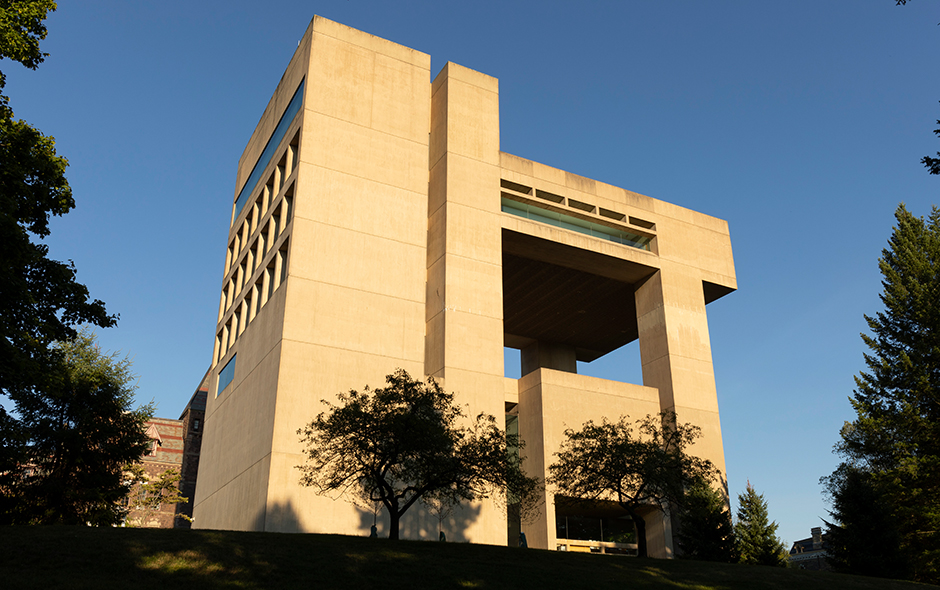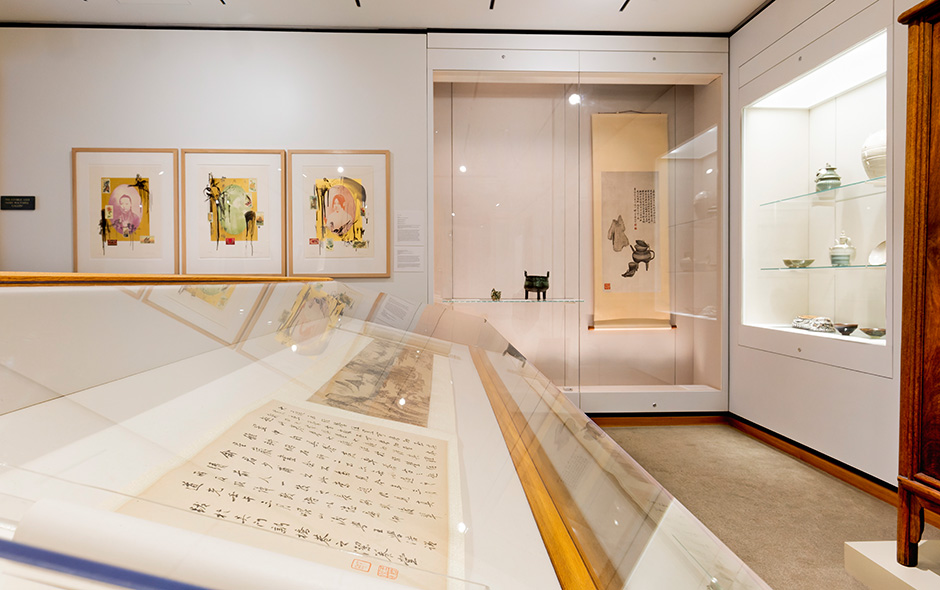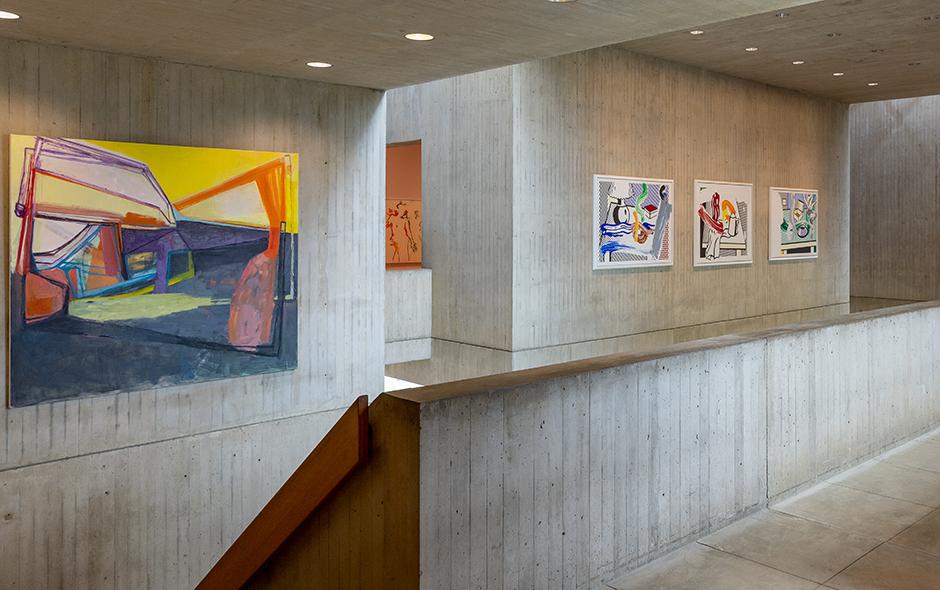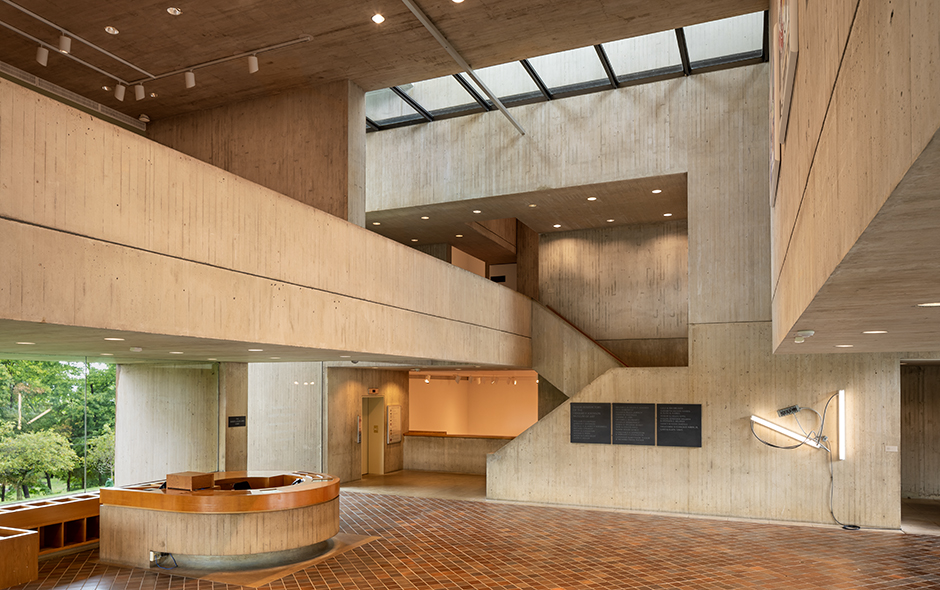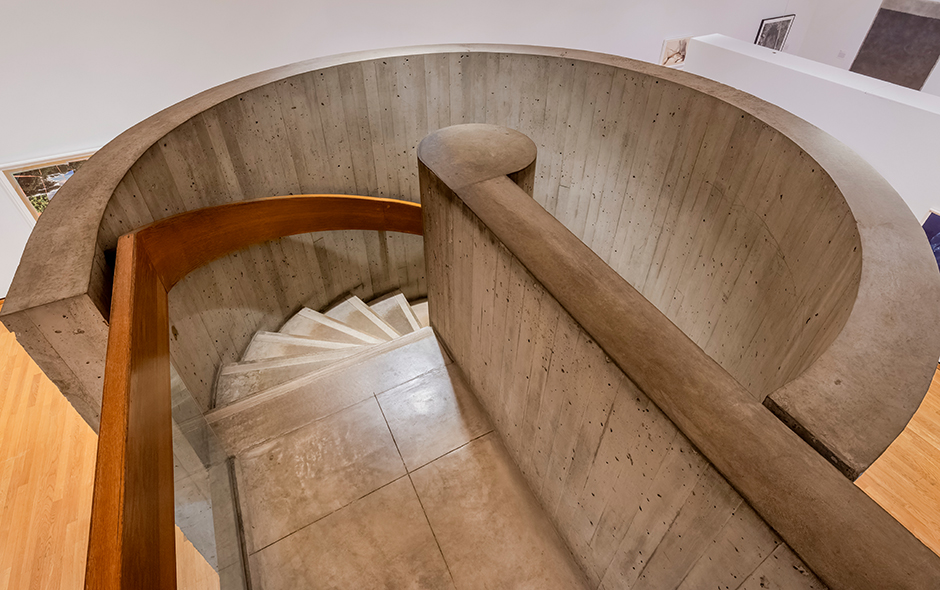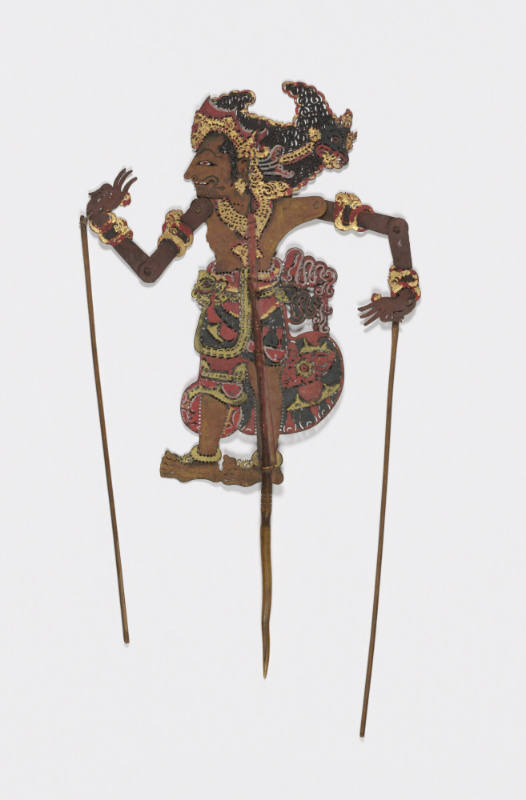
Object Details
Culture
Indonesia, Java
Medium
Buffalo leather, buffalo horn, and pigments
Credit Line
Gift of Professor Benedict R. O’G. Anderson
Object
Number
81.033.024
In the epic Mahabharata, Karna, the older half brother of the Pandawas, was born to Kunti after her (…)
In the epic Mahabharata, Karna, the older half brother of the Pandawas, was born to Kunti after her tryst with Surya, the god of the sun. Kunti gave up her firstborn and he was raised by an unassuming family of charioteers. Eventually he came to mete the Korawa brothers, who were kind to him and included him as part of their own family, whereas the Pandawas, his true family, were rude and shunned him, not knowing they were related. The poignancy of these connections becomes clear toward the end of the Mahabharata, when Karna has to choose whether to fight on the side of his biological brothers, or his adopted ones. Ultimately, he is killed by Arjuna during the Kurukshetra War between the Korawas and Pandawas.



